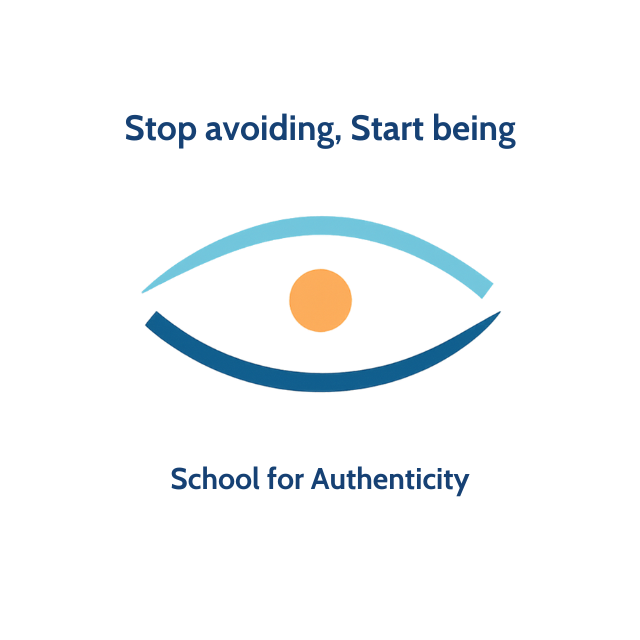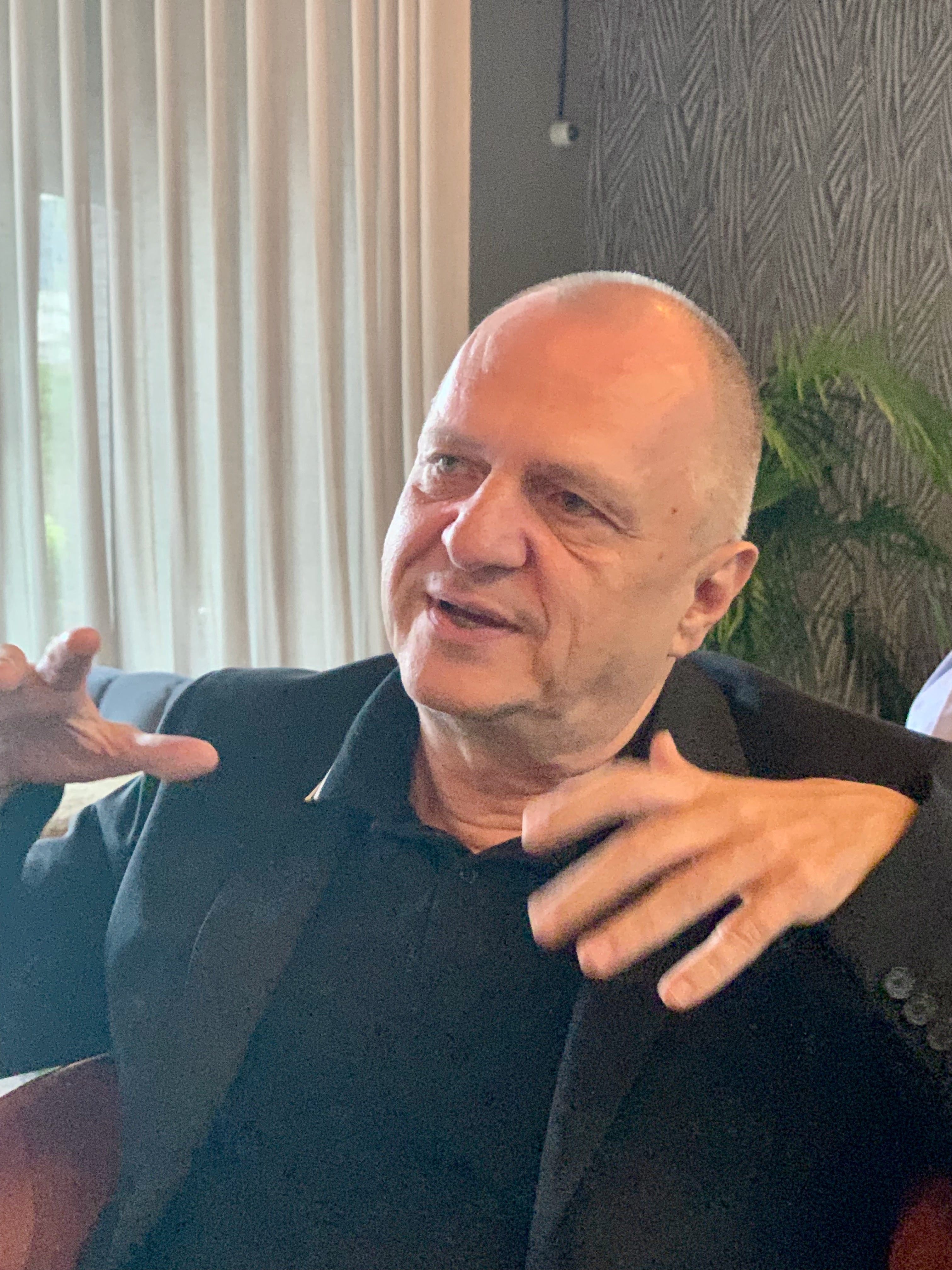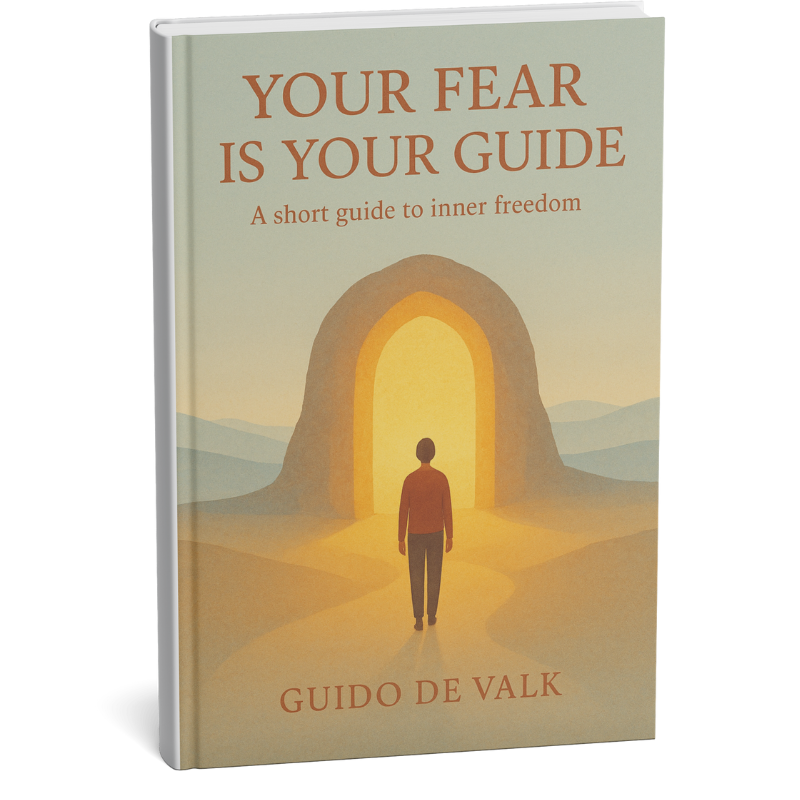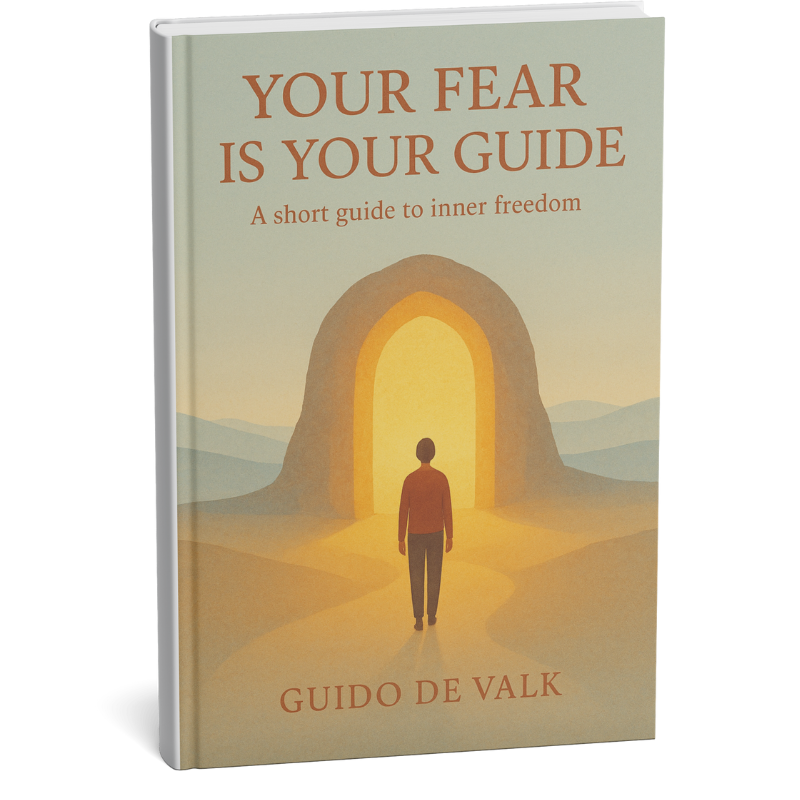Fear Isn’t Your Enemy. It’s the Door to Your True Self
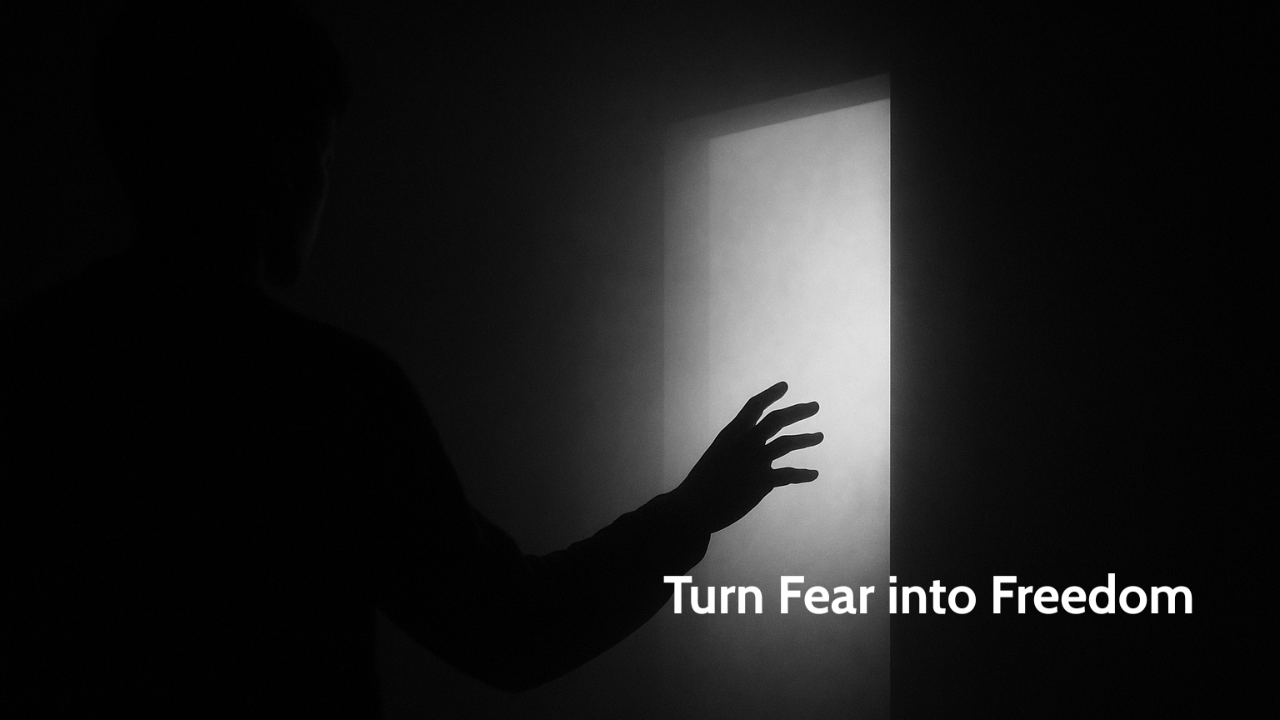
If you want to become more yourself — to show more of your preferred, authentic version of “you” — you must learn to deal with your fear.
Fear is what keeps you from expressing your True Self.
You may want to make new friends but think:
- Who would want to hang out with me?
- I have nothing interesting to say.
- Maybe later…and you end up hesitating.
All these thoughts have one and the same root: fear. Fear shapes your thoughts and actions. It doesn’t mean you’re a fearful person — it means you’ve built habits based on fear. That distinction is crucial. You are not your fear. You simply have fear-based habits.
Emotions Are Messengers, Not Identity-Makers
This is essential for the School for Authenticity: Emotions are messengers — not your identity. Your identity is your authentic self, often hidden beneath the layers of emotion that drive your daily choices. Many of us identify with our fear — I did too. “I’m just an anxious guy.” “I’m someone who always procrastinates.” But those are just labels built on emotion, not the truth.
The Real Meaning of Fear
We often misunderstand fear. We see it as useless, uncomfortable, something to avoid. But fear is simply a feeling. That’s all.
You’ve learned to interpret that feeling in a particular way — as a warning about a possible future you don’t prefer. So you act to prevent that imagined future from happening.
Example:
You think, “I have nothing to say.” That means you fear others’ opinions. To avoid their judgment, you stay silent. In reality, you’re not avoiding people — you’re avoiding an imagined, negative future.
Fear Is About Avoiding Imagined Futures
When fear leads your actions, you’re not reacting to reality — you’re reacting to your own imagination.
You might want to share your thoughts on social media, but you fear not getting enough likes. So you don’t post.
You’re not avoiding rejection — you’re avoiding a fantasy of rejection that lives only in your mind.
The same happens in your work.
When I still had a job, I met many colleagues who were unhappy.
When I invited them to explore change, they resisted, thinking of everything that could go wrong. Their fear didn’t protect them; it kept them stuck.
Acting from Belief Creates Your Reality
Here’s a key principle in conscious creation:
When you act from a belief, you realize that belief in your reality.
A fear-based belief says: I must avoid negative situations.
As a child, that helped keep you safe.
But as an adult, it limits you.
I know this deeply. I spent years trying to avoid pain and ended up right inside it. My fatalistic view of life was never truly mine — it came from learned fear.
What Fear Really Reveals
There’s a different way to meet fear:
Let it reveal what you truly believe about yourself.
Fear shows you the exact place where your True Self wants to emerge, but you’re still protecting it.
In essence, fear tells you that you’re trusting an idea about yourself that simply isn’t true.
Let’s return to the example of social media.
You keep postponing posting, afraid that people won’t like your content.
The real reason isn’t fear of rejection — it’s a deeper, unconscious belief like:
“I shouldn’t take up space.”
When you take up space, fear arises. So you shrink back — and the belief stays alive.
Beliefs Are Unconscious — But Changeable
Here’s the paradox:
You don’t know your beliefs, yet you trust them blindly.
You obey them as if they were truth.
If you believe something might be dangerous, you avoid it — even without proof.
But the moment you become conscious of a belief, it begins to dissolve.
You feel that it no longer fits. Your brain literally rewires itself — the neural pattern fades away like snow under the sun.
Closing Thought
Fear isn’t a barrier to overcome.
It’s an invitation to meet the part of you that’s ready to be free.
When you stop fighting it — you start meeting yourself.
